|
|
|
Книги Seidlhofer Barbara

|
The spread of English as the international lingua franca (ELF), like other aspects of globalization, calls for a reconsideration of conventional ways of thinking. As the language is taken over and put to effective communicative use by non-native speakers on a global scale, assumptions that native speakers have exclusive property rights, and are the arbiters of its proper use, are obviously no longer tenable. ELF typically departs from native speaker usage in a variety of ways, but in ways which are consistent with the kind of variation that is evident in any natural language. This book argues that ELF needs to be understood as an adaptable and creative use of language in its own right, and not as a deviant or erroneous version of native speaker English. It demonstrates how its 'non-conformist' formal features are functionally motivated by the dynamics of communicative interaction. In this respect, ELF is of particular relevance to the sociolinguistic study of language variation in general. But as the book points out, this reconceptualization of 'English' also has important pedagogic implications since it raises questions about what kind of language content and what kind of communicative capability it is appropriate and realistic to teach as a subject. |
|